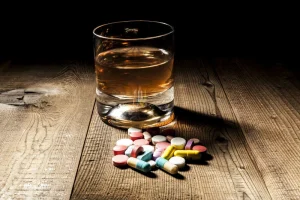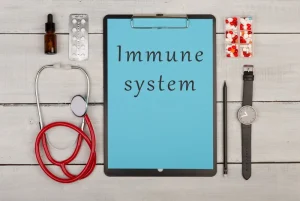
Therapy, especially trauma-focused therapy, medications, support, and coping mechanisms can help you regain control over your life. Many people with PTSD self-medicate with alcohol because it temporarily makes them feel better. Drinking alcohol causes the brain to release neurotransmitters that give you a sense of pleasure and euphoria, including dopamine, serotonin, and endorphins. Complex PTSD (or C-PTSD) is a similar condition that can occur when someone experiences repeated, ongoing trauma.
PTSD and Substance Abuse in Veterans
- Implementing SUD treatments for individuals with co-occurring PTSD and AUD could be a way for providers to address clinical needs without learning another manual-guided treatment.
- The authors emphasized that even though AUD was found to be less common in AA women as compared to EA women, AUD is still prevalent and problematic among AA women.
- Although urinalysis is the predominant and often preferred biological method of assessment, SUD screening may also involve testing other bodily fluids, such as blood and saliva (Wolff et al., 1999).
- Based on the work of Stein and colleagues (2017), pre-enlistment screening to identify service member with alcohol misuse or AUD will also likely help identify those at risk of developing PTSD, or other mental health problems (e.g., depression, panic disorder), during military service.
- Therapy, especially trauma-focused therapy, medications, support, and coping mechanisms can help you regain control over your life.
Treating these conditions simultaneously has been challenging and complex in the general population, and military service adds additional risk factors for the likelihood of their onset and maintenance. Although promising interventions exist, more research is needed to assess the degree to which current interventions are effective for service members and veterans. Also, new interventions that target this population should be developed and tested.
Recognizing the Signs of Alcohol Abuse in Individuals with PTSD

This can lead some people to drink again, leaving them trapped in a vicious cycle. Psychotic disorders are characterized by delusions, or strongly held false beliefs that are not typical of the person’s cultural background; hallucinations, or experiences involving the perception of something that is not present; and thought disorganization, or disturbances https://ecosoberhouse.com/ in cognition that affect a person’s ability to communicate. Complex trauma and AUD are often intertwined, as childhood trauma increases the risk of developing AUD. According to a 2023 study involving female participants, dissociation increases suicidal behavior and is a mediator between childhood sexual abuse and suicidal behavior.

People Diagnosed With PTSD Have Higher Rates of Alcohol Abuse.

On the other hand, this over-estimation may lead to lower self-efficacy for treatment success, which could partially explain the poor treatment outcomes often seen for this group (Saxon & Simpson, 2014). Additionally, this pattern of highly rated drinking problems on low-drinking days could be symptomatic of attentional biases that interfere with the accurate self-assessment that contributes to successful PTSD and AUD treatment (Donovan, 2003; Prochaska & Vellicer, 1997). In other words, if a patient’s attentional bias causes them to consistently overestimate the role of alcohol in their life problems, this may interfere with their ability to make and achieve behavior change goals. Ultimately, treatment to address both PTSD and AUD may require interventions that support accurate assessment of drinking consequences either to increase motivation to engage in treatment or to clarify the impact of treatment as it (and its corresponding gains) occurs, or both. PTSD (Post-Traumatic Stress Disorder) and alcohol abuse are two serious mental health issues that often occur together.

It is important to note that, at present, the variables which may predict a more favorable response to integrated treatment (including patient, trauma, or substance related variables) are unclear. In addition, clinicians should consider the functional relationship between PTSD and SUD symptoms for each patient. Clinicians will want to obtain information regarding the exact reasons why each patient reports using substances (e.g., to sleep better and not remember trauma-related memories, to block out memories or flashbacks, to be able to engage in social interactions) and use this information to inform treatment selection and implementation. Critically, TBI, PTSD, and AUD are commonly comorbid, which is unsurprising given that intoxication elevates risk of TBI, and that generally high rates of alcohol misuse occur among patients who have TBI.21 The relationships among these conditions are an area of active investigation. Moreover, the cognitive impairments combined with decreased frustration tolerance that are central to both TBI and PTSD can increase the likelihood that daily difficulties will lead to drinking. Because some of the relationship between TBI and AUD is likely mediated by PTSD, it has been difficult to disentangle the contribution of TBI and PTSD to the development of AUD, given their similar etiology and symptomatology.
Narrative exposure
As such, continued research on the development of effective screening, prevention and treatment interventions for service members and veterans is critically needed. Based on the work of Stein and colleagues (2017), pre-enlistment screening to identify service member with alcohol misuse or AUD will also likely help identify those at risk of developing PTSD, or other mental health problems (e.g., depression, panic disorder), during military service. Given that most service members have post-enlistment onset of AUD, effective ways to monitor alcohol use during service are needed in order to identify and address alcohol related problems early on and thereby minimize risk of the development of PTSD and other psychiatric comorbidities.
How does alcohol affect PTSD symptoms?
- Werner and colleagues (2016) report on the increased rates of trauma exposure and PTSD among African American (AA) women as compared to European American (EA) women, and examine differences in the relationship between PTSD and AUD among AA and EA women.
- People seeking co-occurring PTSD and alcoholism treatment need to work with treatment professionals experienced in PTSD and alcohol treatment.
Again, it’s important to create a timeline of mental health symptoms and alcohol use and to collaborate as needed with mental health specialists for selection of pharmacotherapies and psychosocial interventions. During withdrawal from heavy drinking, people may develop delirium tremens, a complication of withdrawal marked by psychotic symptoms, such as hallucinations (see Core article on AUD). The mood disorders that most commonly co-occur with AUD are major depressive disorder and bipolar disorder. For healthcare professionals who are not mental health or addiction specialists, the following descriptions aim to increase awareness of signs of co-occurring psychiatric disorders that may require attention and, often, referral to a specialist. Here, we briefly describe the causes and effects of co-occurrence, the mental health disorders that commonly co-occur with AUD, and the treatment implications for primary care and other healthcare professionals.
- Both within person daily levels of PTSD and between person overall levels of PTSD could interact with daily drinking amounts.
- This strong connection shows the importance of treating both conditions together.
- Treatment for co-occurring PTSD and alcohol use disorders may include both individual therapy and group therapy.

This review provides a general overview of the bidirectional relationship between TBI and AUD and a discussion of potential neuropsychological and neurobiological mechanisms that might underlie the relationship. While alcohol may offer short-term relief from the emotional toll of PTSD, it ultimately worsens the condition and leads to further addiction. Early intervention, professional treatment, and strong support systems are critical in breaking this cycle.
An overall emphasis on the AUD component may come first, or an emphasis on the co-occurring psychiatric disorder may take precedence, or both conditions can be treated simultaneously. The treatment priorities depend on factors such as each patient’s needs and the clinical resources available. When patients report mood symptoms, it helps to clarify the possible relationship with alcohol use by asking, for example, about mood symptoms prior to starting alcohol use and on extended periods of abstinence. ptsd and alcohol abuse In addition, ask about current and past suicidal ideation or suicide attempts, as well as the family history of mood disorders, AUD, hospitalizations for psychiatric disorders, or suicidality. Individuals with CPTSD may use substances like alcohol or drugs to cope with their emotional distress and psychological symptoms resulting from prolonged trauma exposure. A 2023 study suggests post-traumatic disorders are among the most common co-occurring diagnoses in people with substance use disorder (SUD).
















